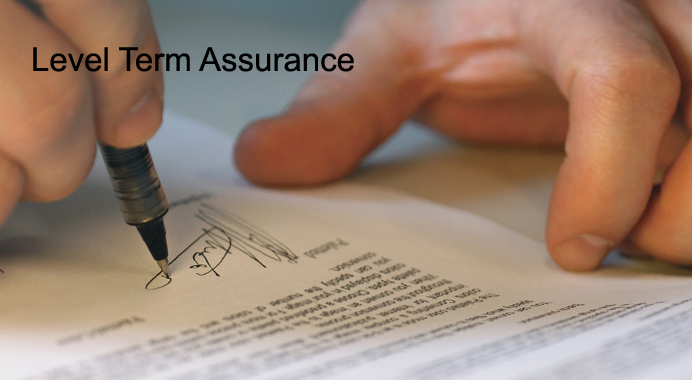
This article (What is Level Term Assurance?) is intended to provide a general appreciation of the topic and it is not advice.
Guidance should be sought from a specialist who is qualified to advise in your specific circumstances.
For more information on this aspect of "life insurance - what you need to know", please contact Mills & Anderson on 0161 929 8668 or email us at info@amtpfs.com. We will be happy to assist you.
Trusts are not regulated by the Financial Conduct Authority.
Back to Insurance
What is Level Term Assurance?
The name says it all. It's term assurance, as you only get a payout within the set 'term' e.g. 18 years. It's level, because the payout you get is fixed from the start of the term until the end. Level term assurance thus guarantees a known lump sum payout upon death within a fixed time e.g. £150,000 if you die within the next 18 years.
How Much Cover Do I Need?
The cover and ensuing cost depends on three things.
The higher the cover the more it costs.The amount of cover should take into account any outstanding debts and allow your dependents to maintain a reasonable standard of living. Do check though whether your employer provides a "death in service" benefit as this may provide a certain amount of cover already and may therefore reduce the overall amount required. If it does, deduct the amount it pays out from the total cover you need. Cover may also be needed for a non-working spouse or partner, especially when children are young, as if the spouse or partner died, the main earner may need to stop working. Level term is important protection for those who have children or a spouse or partner who would suffer financial loss if you died, but affordability also counts, so if the appropriate cover is too costly, it's better to have some than none if it's relevant.
How long should cover last. A policy intended to provide for children should last until they finish full time education, or for a partner until the earner reaches pensionable age. Don't feel obliged to cover a round number of years e.g. policies may be for 17 years.
Your lifestyle can make the cost of cover cheaper.The amount paid increases with the likelihood of death within the term – age, health, being a smoker and having a risky occupation, can increase the price. Couples can have joint or separate cover.
As noted, Couples can choose either separate policies or joint policies which pay out on the first death. However a joint policy would only be suitable if you needed the policy to pay out on the first person to die, as the cover would end at that point. Even if a joint policy does look suitable, it's worth getting quotes for standalone policies anyway, as it may be cheaper.
If you die the life assurance payment will form part of your estate, which means that the value of your estate could be liable to Inheritance Tax. In many cases you can avoid this by writing the policy in trust – which means the payment(s) goes direct to your dependents, avoiding inheritance tax. This is relatively easy to do as most insurance policies include the option (and papers) for writing in trust directly, at no extra charge.